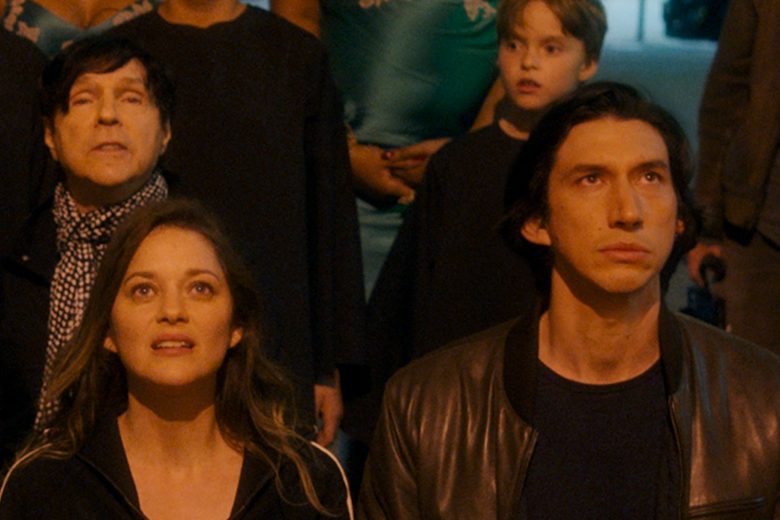Controversial stand-up Henry McHenry (Adam Driver) and his opera singer wife Ann (Marion Cotillard) seem to have it all – the talent, the fame and the fortune – which is further emphasised when Ann gives birth to their daughter, Annette. However, Henry’s increasing resentment of Ann’s increasing success as well as her suspicions about Henry’s true nature result in tragedy. Afterwards, Annette begins to sing in her mother’s voice, giving Henry the idea to promote Annette as a singing sensation in order to profit from her talent. Along with Ann’s former accompanist (Simon Helberg), Henry and Annette go on worldwide tours, but Henry’s past soon comes back to haunt him.
Making his English-language debut, director Leos Carax provides a visually-stunning, stylised approach to the narrative that embraces the artificiality of the musical format whilst not sidelining the plot or characterisation. Sequences such as the fateful confrontation between Henry and Ann as well as Henry’s subsequent questioning by the police manage to balance combining theatrical conventions with more naturalistic narrative developments without any obvious seams showing. Carax’s most inspired creative decision is to portray Annette as a wooden marionette for most of her screen time, succinctly representing how she is used by Henry in order to further his own career. In addition, the well-written songs composed by Sparks help to convey the narrative beats and character development without ever seeming gratuitous – the inclusion of Annette’s burgeoning stardom further helps to justify their inclusion in the film.
Driver provides an impressively driven performance as Henry, not only capturing the character’s early prowess as a shock comedian but also how his jealousy at his wife’s success manifests itself in not only his murderous impulses, but also his Svengali-like need to exploit Annette’s singing talent. However, he doesn’t fall into the trap of making Henry a two-dimensional villainous caricature, with his final scene with Annette highlighting his regret at his actions and showing his love for his daughter. Likewise, Cotillard also impresses in her brief role as Ann, making the most of limited screen time to make her character seem fleshed out through her convincing realisation of her fears about Henry, which feel especially relevant in a post #MeToo age. However, it is Helberg who surprises the most in his mastering of the unnamed Accompanist’s nuanced characterisation, from his lingering love for Ann to being complicit in Henry’s exploitation of Annette until he reaches breaking point.
Annette works as an operatic fable about the twin prices of greed and fame that skilfully combines a heavily stylised mise en scène with a thematically darker narrative and characterisation without either approach jarring or clashing. Both Carax and Driver show why they are the most impressive talents working in film today.
Available to stream on MUBI
